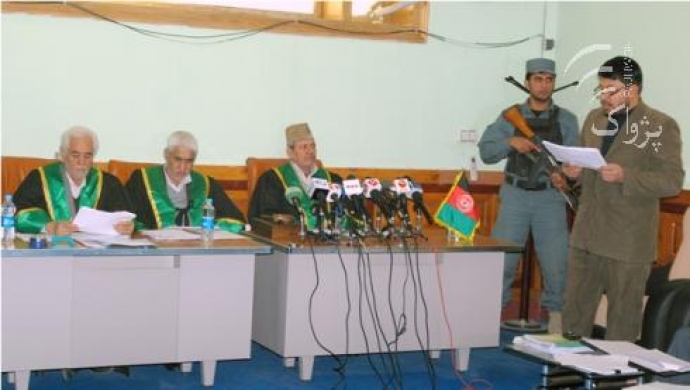KANDAHAR CITY (PAN): Residents of southern Kandahar province say they agree with a recent Transparency International survey that singled out judiciary as the most corrupt public institution in Afghanistan.
But on Saturday, the Supreme Court hit back at the global watchdog that said the Afghan judiciary and police received larger amounts of bribes than any other institutions.
On July 10, the latest study said 60 percent of Afghans reported they thought the judiciary was the most corrupt government institution. The respondents claimed paying a bribe to the judiciary in one form or another.
But Dr. Abdullah Attayee, the Supreme Court administrative head, faulted the survey and asked the global watchdog for concrete evidence in support of its findings. He denied court officials received bribes from the masses.
If it failed to produce relevant proofs, the TI office in Afghanistan would be placed under judicial investigation and shut down, he warned.
The survey has been carried out in 107 countries during the period of eight months, when 2040 people in Afghanistan were interviewed about corruption at judicial organs. Most Afghans interviewed said corruption had increased in Afghanistan over the past two years.
Haji Aslam, a resident of the Mirwais Mena area in Kandahar City, alleged judicial officials deliberately delayed cases in order to force the individuals concerned into paying bribes.
A small case took months to be done with, therefore people opted to approach religious seminaries and mosque to resolve their problems like divorce and disputes, he said.
An expert on judicial affairs, Sakhi Noriwal, also said judicial organs were rife with different forms of corruption. He claimed most decisions at courts came in favour of wealthy and influential figures and the poor denied justice.
He said a majority of people had no faith in the judiciary and preferred to resolve their problems through other means.
Mursal Ahmadzai, who heads the women rights section at the provincial Independent Human Rights Organisation office, told Pajhwok Afghan News inordinate delays in resolving divorce cases and problems at the judiciary had compelled people to approach religious scholars instead of courts, something she called a matter of great concern.
She said decisions taken by other sources instead of courts had no legal value, adding it has been corruption in judicial organs that led people to take alternative routes and resolve problems on their own.
Governor Toryalai Weesa has recently asked judicial officials to respond timely to public demand and speed up their affairs.
But judicial officials in Kandahar rejected the TI survey and asked the United Nations to investigate the organisation’s claims.
Kandahar Primary Court chief Dil Aqa Himmat, provincial council chief Haji Syed Jan Khakrezwal and Defence Lawyers Union head Gul Makai a day earlier appeared in a joint press conference, rejecting the TI report as baseless.
Aqa said the survey was not acceptable to them because it involved money, raising questions about its credibility. He added the TI had accused the country’s judiciary of corruption and they wanted the UN to investigate the issue.
He acknowledged corruption existed at every government department including judiciary, but not at the scale as claimed by the Transparency International.
The provincial council chief said public representatives were satisfied with the provincial judiciary organs. Khakrezwal said as for as their knowledge was concerned, corruption at judicial organs was not existed at the level as alleged.
Gul Makai said reforms had been brought to the judiciary and its affairs had improved compared to the past.













